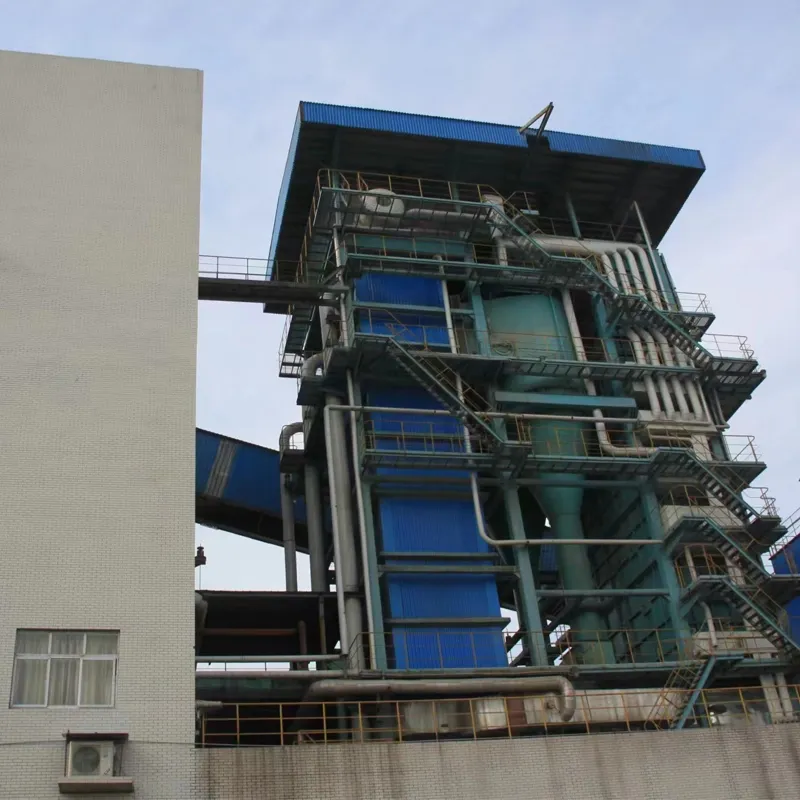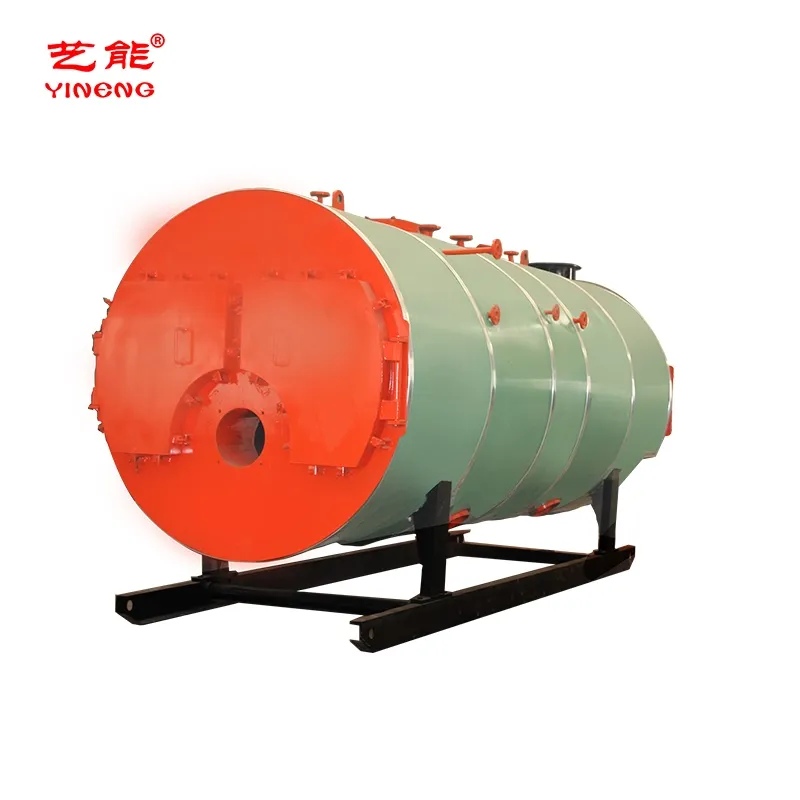Eco Biomass Hot Water Boilers High Efficiency & Savings
- The Rising Demand for Efficient Water Boilers
- Market Growth and Economic Impact
- Technical Superiority of Biomass Hot Water Systems
- Comparing Leading Biomass Boiler Manufacturers
- Tailored Solutions for Diverse Applications
- Real-World Success Stories
- Making the Smart Choice in Water Boilers

(water boiler)
The Rising Demand for Efficient Water Boilers
Industrial operations increasingly prioritize thermal efficiency and sustainability, driving substantial growth in biomass hot water boiler
adoption. Modern facilities seek solutions that reduce carbon footprints while maintaining operational reliability. The global biomass boiler market projects 7.8% CAGR through 2028 according to Energy Agency analytics, with Asia-Pacific regions showing particularly strong demand. This surge reflects stricter emissions regulations and rising fossil fuel volatility.
Biomass units effectively convert agricultural residues like wood chips and palm kernel shells into thermal energy at 85-92% efficiency rates. Leading European factories report 40% operational cost reductions after switching from gas-fired systems, with payback periods under three years when utilizing local biomass waste streams. These economics make biomass hot water boiler products compelling investments despite higher initial equipment costs.
Market Growth and Economic Impact
Commercial biomass boiler installations grew by 18% annually since 2020, transforming energy economics across multiple industries. Processing facilities now recognize that a properly sized biomass system delivers consistent ROI through:
- Fuel cost stability - Insulated from oil/gas price swings
- Carbon credit generation - Meeting ESG mandates
- Waste utilization - Converting residue into assets
The typical 500kW industrial biomass hot water boiler reduces CO2 emissions by approximately 240 tons annually compared to equivalent gas models. Manufacturers now publish comprehensive biomass hot water boiler pricelist documents showing tiered pricing models based on capacity and automation levels.
Technical Superiority of Biomass Hot Water Systems
Contemporary biomass boiler engineering delivers substantial improvements over earlier generations. Advanced reverse combustion gasification technology achieves emissions below 20mg/Nm³ for particulate matter, while proprietary heat exchanger designs maintain consistent 90°C+ output temperatures with fuel moisture content up to 45%. Automated ash removal systems reduce maintenance intervals to quarterly schedules, maximizing operational uptime.
Three critical technological milestones have propelled performance:
- PLC-controlled multi-stage combustion chambers
- Condensing economizers recovering latent heat
- AI-driven fuel optimization systems
These innovations yield 15-20% efficiency gains compared to standard biomass hot water boiler products from just five years ago, establishing new industry benchmarks.
Comparing Leading Biomass Boiler Manufacturers
| Manufacturer | Thermal Efficiency | NOx Emissions (mg/Nm³) | Automation Grade | Price Range (500kW) |
|---|---|---|---|---|
| Ecotherm Solutions | 94% | <18 | AI-Optimized | $58,000-72,000 |
| GreenHeat Industries | 89% | 22-30 | Advanced PLC | $42,500-51,000 |
| BioPower Systems | 91% | 19-25 | Basic Automation | $47,800-62,000 |
Selecting biomass hot water boiler factory partners requires evaluating both technical specifications and project support capabilities. Established European manufacturers typically provide superior emissions control, while Southeast Asian factories offer compelling pricing. Comprehensive performance guarantees distinguish premium suppliers.
Tailored Solutions for Diverse Applications
Industrial requirements necessitate customized boiler configurations rather than one-size-fits-all approaches. Food processing plants often integrate steam injection modules for sanitation cycles, whereas textile manufacturers prioritize rapid temperature modulation capabilities. Leading suppliers develop application-specific packages including:
- Compact containerized units for space-constrained sites
- Hybrid solar-biomass configurations
- High-pressure systems for district heating networks
A German beverage company achieved 34% energy savings through a bespoke cascade system pairing two 350kW boilers with thermal storage buffers, optimizing for variable production demands. This demonstrates how tailored approaches outperform standard biomass hot water boiler product offerings.
Real-World Success Stories
Practical implementations validate technical specifications across climates and industries:
- Swedish Dairy Cooperative - Reduced heating costs by $220,000 annually using locally sourced wood chips after equipment payback in 28 months.
- Thai Rubber Processing Plant - Eliminated gas expenses completely by utilizing rubber tree waste with 8.5-month ROI.
- Canadian Greenhouse Complex - Maintained consistent 82°C water temperature during -32°C winters using automated stoker systems.
Monitoring data consistently confirms emission levels below 50% of regulatory limits when utilizing Tier-4 certified biomass hot water boiler models. These installations typically achieve maintenance costs under $0.003 per kWh produced.
Making the Smart Choice in Water Boilers
Forward-thinking operations prioritize biomass water boiler systems for sustainable thermal solutions. Comprehensive evaluation should encompass both technical capabilities and manufacturer credentials. Demand verified test reports showing emissions compliance under actual load conditions rather than laboratory settings. Leading suppliers now provide remote performance monitoring portals with real-time efficiency analytics.
The lifecycle cost perspective remains crucial—premium efficiency boilers command higher prices but deliver superior total ownership value. Always cross-reference biomass hot water boiler pricelist documents with independent energy audits to validate projected savings. As carbon pricing expands globally, early adopters gain competitive advantage through established low-emission infrastructure. Modern biomass solutions effectively balance environmental responsibility with operational excellence.

(water boiler)
FAQS on water boiler
Here are 5 FAQ groups about water boilers and specified , presented in rich HTML format:Q: What factors determine the biomass hot water boiler pricelist?
A: The price depends on boiler capacity, material quality, and emission control systems. Additional costs may include automation features and custom engineering specifications. We provide detailed quotes based on your thermal output requirements.Q: How to identify a reliable biomass hot water boiler factory?
A: Look for ISO-certified manufacturers with 10+ years of specialized production experience. Verify their testing facilities and after-sales service coverage. Good factories provide comprehensive installation guidance and maintenance training.Q: What key components are included in a biomass hot water boiler product?
A: Standard packages feature fuel feeders, combustion chambers, heat exchangers, and ash removal systems. Advanced models include automated control panels and emission monitors. All our products come with safety valves and pressure gauges as standard.Q: Why choose biomass over traditional fuel for water heating?
A: Biomass boilers cut CO₂ emissions by 80% compared to fossil fuels. They utilize renewable agricultural waste like wood pellets at lower operational costs. Modern designs achieve 90%+ thermal efficiency with minimal ash residue.Q: How does a biomass hot water boiler handle different climate conditions?
A: Insulated boilers maintain stable performance in -20°C to 40°C environments. Freeze-protection systems prevent pipe damage during cold seasons. Tropical models feature enhanced corrosion resistance for high-humidity regions.-
Top Electric Steam Boiler Manufacturers – Reliable Industrial SolutionsNewsJul.25,2025
-
Top Electric Steam Boiler Manufacturers – Reliable Industrial SolutionsNewsJul.24,2025
-
Top Electric Steam Boiler Manufacturers – High Efficiency & ReliabilityNewsJul.23,2025
-
Best China Steam Boiler Price for Efficient Industrial HeatingNewsJul.22,2025
-
Top Electric Steam Boiler Manufacturers - High-EfficiencyNewsJul.21,2025
-
High-Efficiency OEM Steam Boilers: Durable & Cost-Saving SolutionsNewsJul.21,2025

